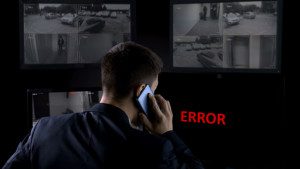Any piece of equipment can prove inefficient if not properly implemented, and that’s just as true when it comes to security system problems as it is with other technological issues. But problems with security systems can lead to substantial economic losses and even legal liabilities in some circumstances. It’s enough to cause substantial concern for business owners and managers alike. Still, once you understand the problem points, it’s easy to minimize the so-called “x factors” that hinder security systems.
1 – The Angle and Location of the Security Camera
 One factor that negatively affects the performance of surveillance video is the angle and location of the cameras. No matter your site or business type, you likely understand that there’s an easy answer to the question, “Who needs security cameras?” Everyone! But moving from asking yourself, “Should I get security cameras?” to actually having them effectively installed can become a challenging process. For instance, if you’ve installed your cameras yourself, you may not have placed them at an optimal angle. In fact, improperly placed cameras may lead to dead spots that your security system simply can’t see, concealing crimes that lurk in plain sight. Expert installation is the best way to ensure that your cameras are doing what you want them to.
One factor that negatively affects the performance of surveillance video is the angle and location of the cameras. No matter your site or business type, you likely understand that there’s an easy answer to the question, “Who needs security cameras?” Everyone! But moving from asking yourself, “Should I get security cameras?” to actually having them effectively installed can become a challenging process. For instance, if you’ve installed your cameras yourself, you may not have placed them at an optimal angle. In fact, improperly placed cameras may lead to dead spots that your security system simply can’t see, concealing crimes that lurk in plain sight. Expert installation is the best way to ensure that your cameras are doing what you want them to.
2 – Improper Syncing
Improper syncing can also reduce the effectiveness of your equipment. A good surveillance system should correctly integrate with, say, a series of auto-lock mechanisms or a cloud-based management system or an on-site alarm system. A correctly functioning system will hinder or entirely exclude criminals during an incident. But what if it doesn’t correctly synchronize with your other equipment? You might as well not have it for all the good it will do you. A security system that doesn’t work as intended usually doesn’t work at all.
3 – Not Maintaining Your Video Security System
Skimping on maintenance is another element that can lead to decreased efficiency. If you find yourself asking what causes interference on security cameras, failing to properly service this may be your sole reason. Indeed, when suggesting security camera troubleshooting tips, this is one of the first things we mention. Why? Failing to regularly inspect your hardware can quickly lead to security system weaknesses. And when a single piece of equipment fails, it may render an entire system useless. Fortunately, a competent security company can regularly service your system, ensuring that it works when you need it to. After all, crime can occur at any time, and a security system needs to function 24/7.
4 – Falsely Triggered Alarms
Falsely triggered alarms are some of the most common security system challenges. Unfortunately, such incidents can have real-world consequences, and alarms that trip in absence of any actual security threat can do more than merely cause panic. Sometimes authorities will charge hundreds of dollars in fees or fines for false alarms, costs that quickly mount up. False alarms may also “train” employees to ignore legitimate threats. Usually false alarms happen because of human error, but other causes may include low batteries, motion sensors that are too close to air vents, loose contacts, and incorrect installations in general.
5 – Power Outages
Systems that weren’t professionally installed can often fall prey to power outages, and out of all of the common problems with alarm systems, this is one of the most serious. For one thing, no security system can work without electricity, and failure to properly connect to both power and communication girds can leave your property vulnerable to a sophisticated attack. While some of these security systems may include backup batteries, unless they’re connected to land lines or have built-in cellular radios, they simply won’t work when the grid goes down. A properly planned security system should take this into account.
6 – Lack of a Backup Monitoring System
Self-monitoring has become quite popular with less expensive, self-installed security systems. With these sorts of setups, the owner/decision maker alone examines any alarms, usually on a cell phone or tablet. However, one of the common problems with alarms systems that are self-monitored is that owners simply can’t remain available around the clock. Given the busy pace of modern life, it’s incredibly easy for individuals to miss intrusion alerts, particularly if they crop up during unusual times such as the middle of the night.
7 – Incorrect Programming Due to Changes in Building Layout
There’s a harsh old proverb that plays on programming language to highlight the importance of putting proper data into any sort of system. It states, “Garbage in, garbage out.” That saying holds doubly true when it comes to security systems. No matter how sophisticated, every system requires accurate information about portals and weak points that require monitoring. If a facility has undergone renovations and managers haven’t reprogrammed the security system to recognize them, they may find themselves facing severe security shortfalls. Regular reviews and maintenance, as well as oversight from a professional third-party, can prevent this from happening.
8 – Incompatible Equipment
Upgrading a portion of a security system or picking up pieces here and there to save some money may seem like a smart idea. However, it often doesn’t work well in practice due to incompatibility issues. One of the most important aspects of any security system is that it functions as an integrated whole, each piece communicating with the others in an appropriate way. Not every piece of equipment works with products from multiple manufacturers and buying piecemeal is a surefire way to run into trouble later. Although you don’t necessarily need to try to future proof your security system from the get-go, you should ensure the compatibility between your existing system and any add-ons.
9 – Insufficient Amount of Sensors/Detectors
When troubleshooting alarm systems or suggesting security camera troubleshooting tips, we always ask our clients about the number of sensors they have installed and where they’ve installed them around their property. Failing to include an appropriate number of sensors in a particular property is every bit as problematic as not updating a security system after significantly altering a floor plan. Sensors function like a system’s eyes, and if there aren’t enough of them, they can’t “see” a problem when it invariably arises. A lack of sensors can also lead to additional problems in the case of physical damage or system malfunction.
“Great prices and a great selection of alarm systems! I’m very happy with their service!”
— Dino Gomez
A Security Company That Partners with You
These are just a few examples of the factors that can cause security-system failure. Overall, your video surveillance system needs professional oversight in order to really work. AT&I System’s has over 25 years of experience in this business and can design, install, and service a system that meets your security requirements.
The services of a professional security company will ensure that your system runs well today and for years to come. Please contact AT&I Systems today if you have any questions about our video security solutions.


















